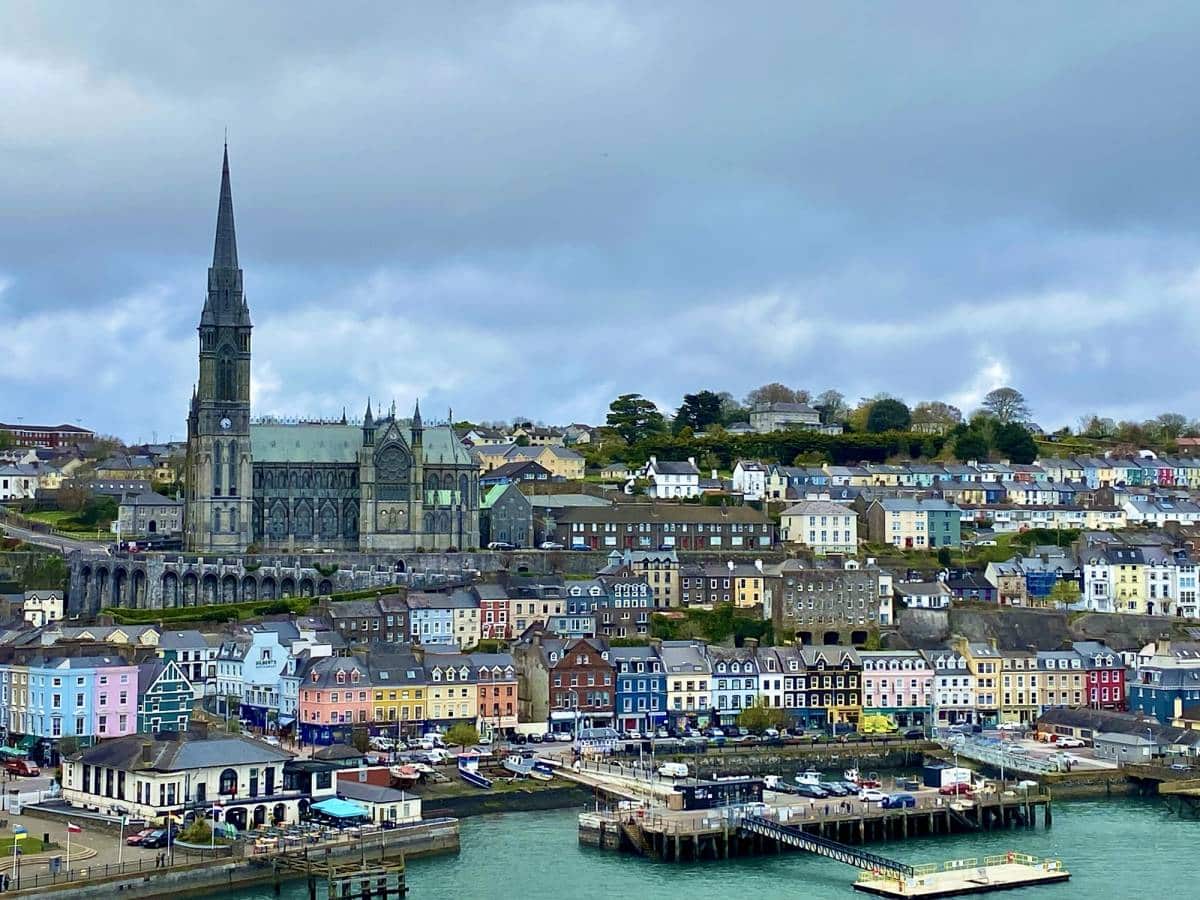
Kissing the Blarney Stone
My spa experiences have been interesting. I’ve been scrubbed to death, pummelled, pricked with needles, and covered in seaweed. And I paid for it! In fairness, I feel great. Best I’ve felt in weeks.
After six days at sea we arrived in Cobh, which is on the coast just outside Cork, Ireland. Cobh was originally called Cove when it was established in 1750. In 1849 it was renamed Queenstown when Queen Victoria visited. In 1921 the name was changed back to Cove in its Irish form, which is Cobh.
We had to go through immigration before getting off the ship which was a cluster of f### if I’ve ever seen one. It put paid to my plans for a full day touring as we had to be back on board by 3:30. Tipperary will have to wait until next time. It was quite a bit further away. The queue for immigration was never ending, and here I was with a fecking Irish passport! It was extremely frustrating and one thing I cannot abide is inefficiency. They could’ve flown immigration officers from Ireland to Bermuda to process passenger during the last six days. We’ve all been scratching around for things to do. There’s only so many knitting classes a chap can go to. There was nothing else for it. I had to act. I decided to go back to the buffet and have a muffin.
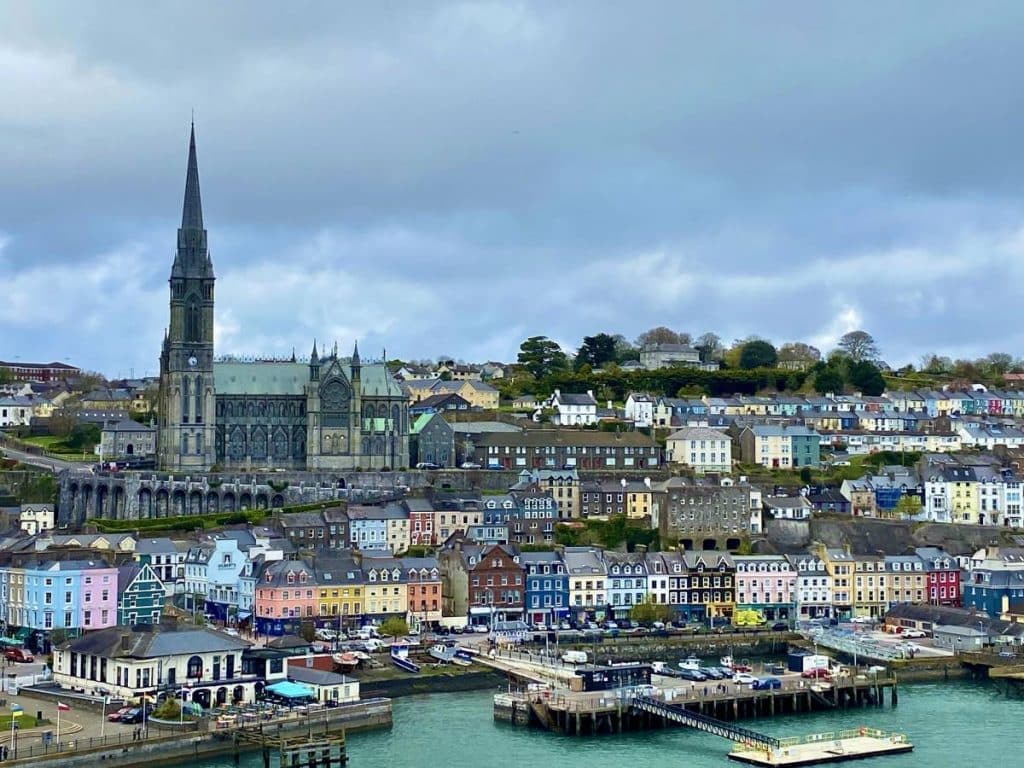
I eventually got off three hours later than planned and caught the shuttle train by the side of the dock to Cork. I wondered around the streets aimlessly for a while looking for a 215 bus stop, but gave up and hopped in a taxi. Blarney Castle was only 5 miles away.
My taxi driver was 61-year-old Henry. His name was Henry Paul which gave him a bit of grief back in 1997 as he shared the same name as the driver of the car when Princess Diana was killed.
We had a lovely chat on the way to the castle. He had been married 36 years, but in his youth, was married when he was 20. He said he met a girl – “great tits. I love great tits”. The marriage only lasted six months. She became very controlling and abusive. Obviously the tits only got her so far. She still lives in Cork and married a rich chap. Henry has heard reports through a friend of a friend, that the rich husband has a torrid time with her. Great tits though.
He dropped me at Blarney Castle and Gardens and it wasn’t crowded at all. I was very impressed with the grounds and the castle itself. I climbed the narrow staircase to the top and was highly pleased that there was a very small kissing queue. Soon it was my turn so I laid on my back, held the bars and leant backwards supported by Dougal. I don’t think I was in danger of slipping through the gap and falling 100ft to my death, but Dougal provided that little bit of reassurance. I kissed the germ infected stone. I will now be blessed with the gift of the gab, or eloquence as it’s described. I wondered round the gardens for a bit more and sat on a bench for a serene moment.
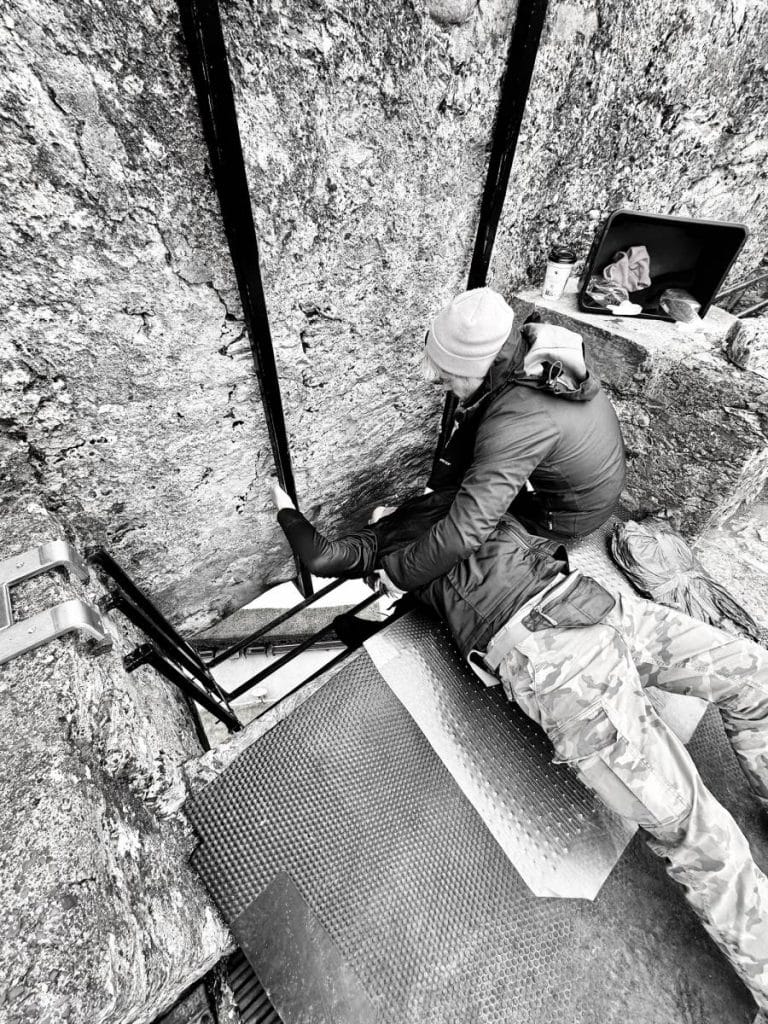
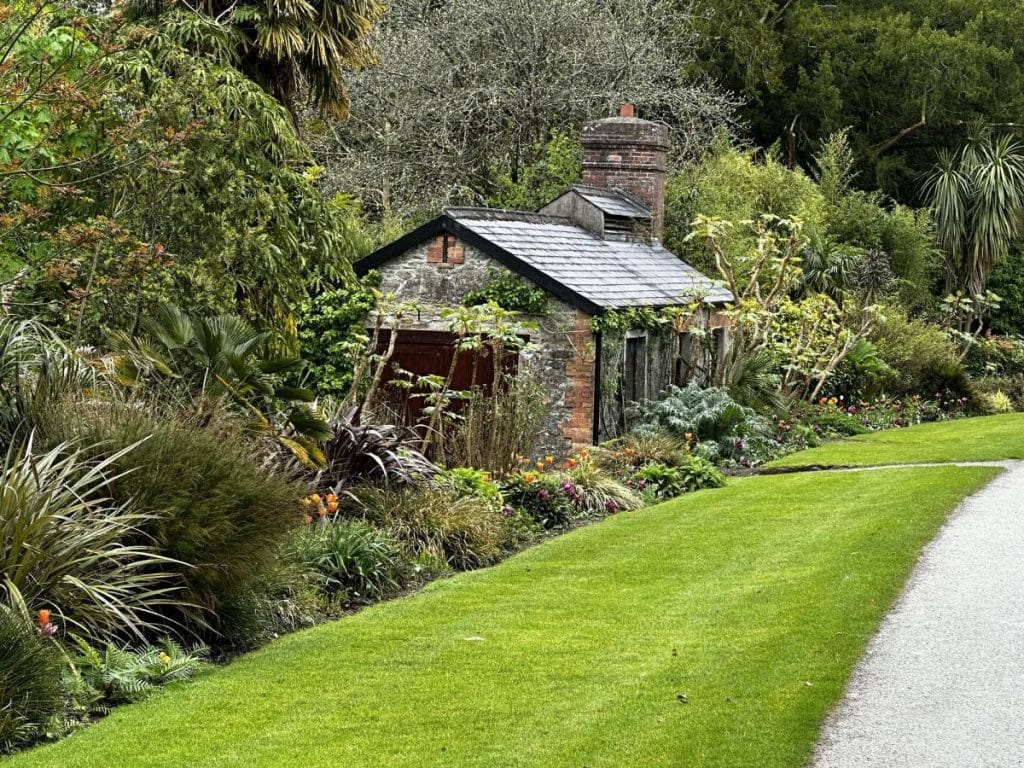
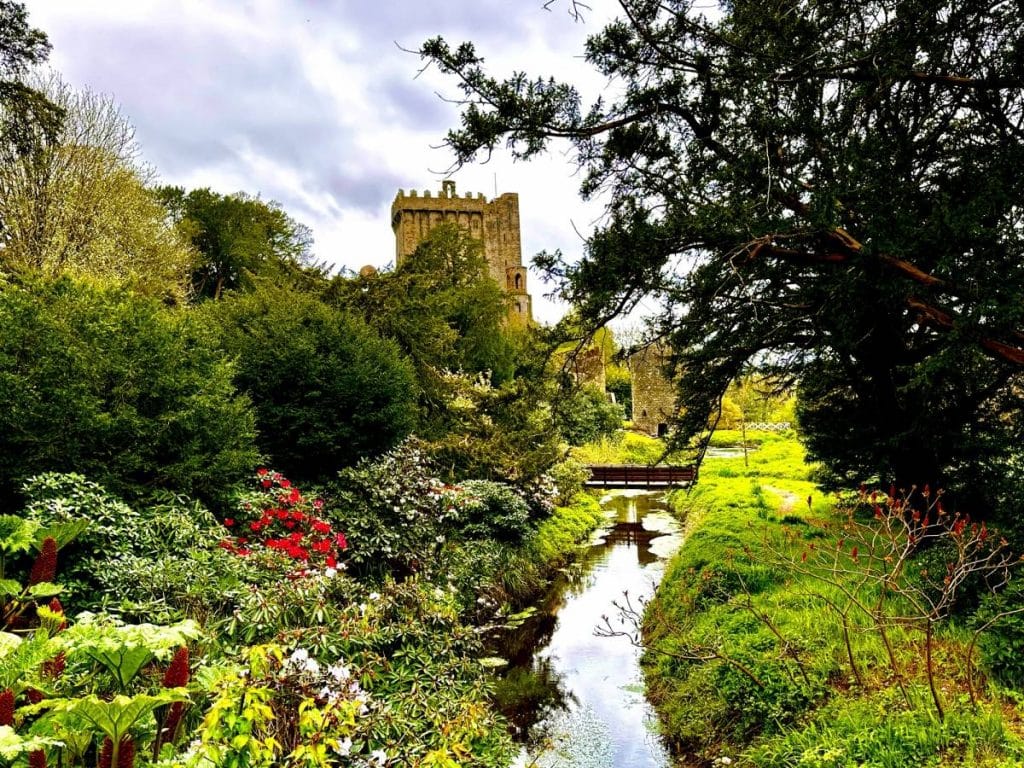
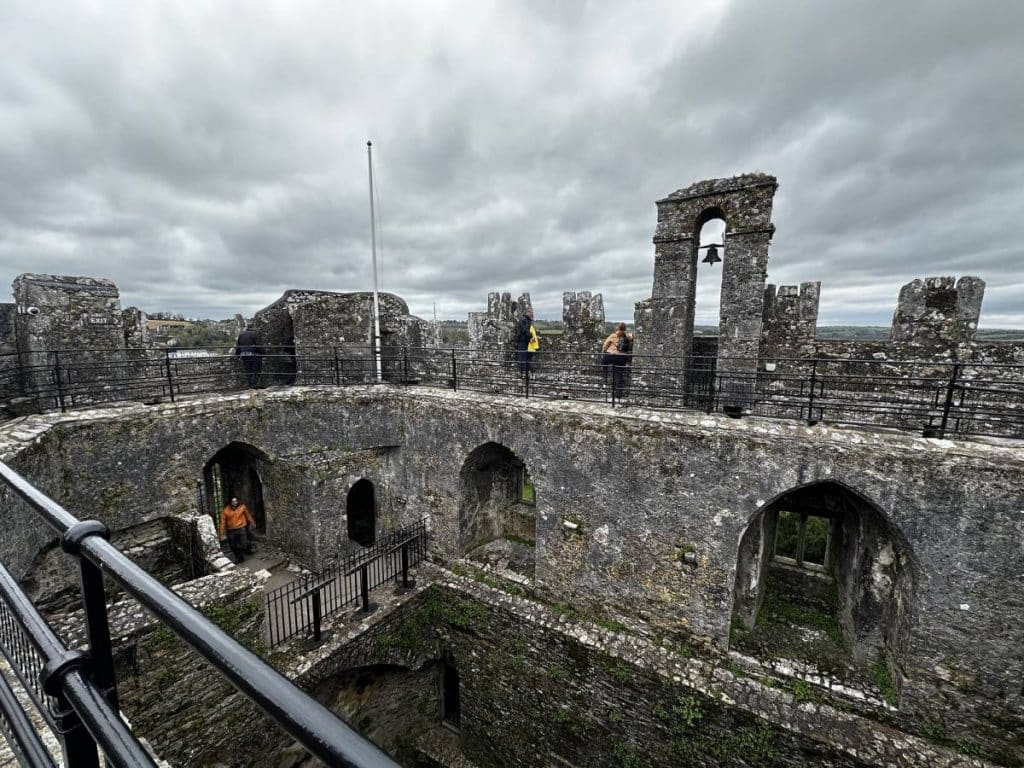
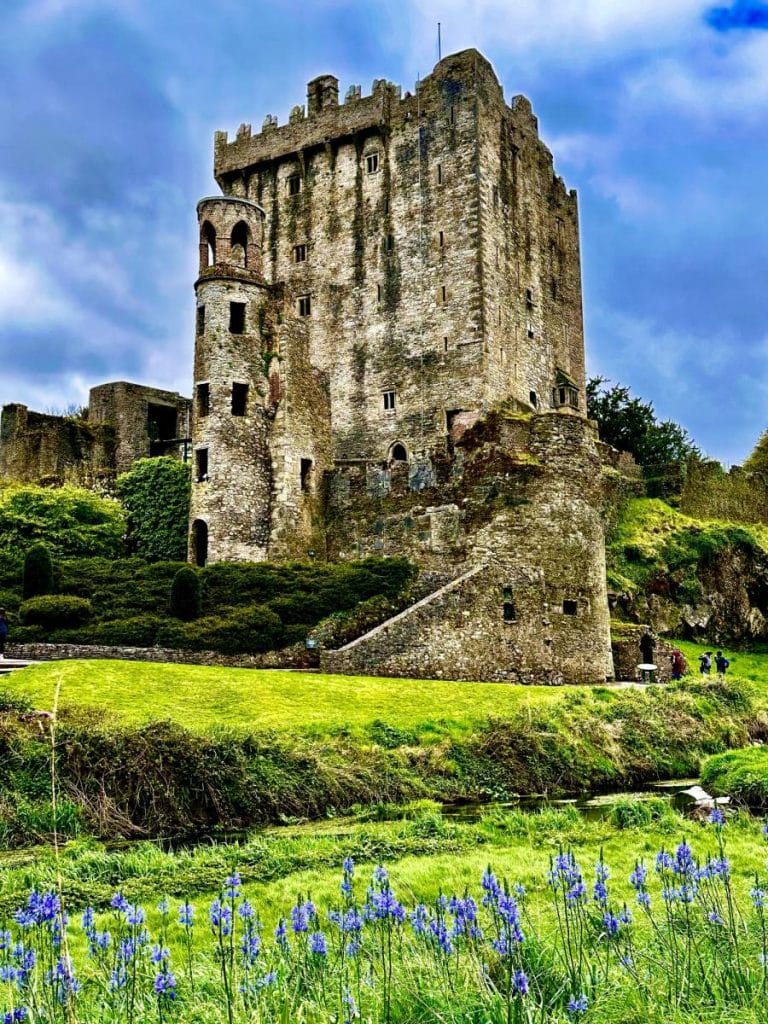
I took the bus back to Cork for about €2 and walked to the station to get the train back. Right on the quayside was the Heritage Museum. I popped in for a few moments.
Queenstown was the departure point for many Irish immigrants to America, and in 1892, Annie Moore was the very first Irish person processed through Ellis Island. I found this hilarious.
I could hear the chap at the processing centre calling out her name. “Annie Moore” to which she replied “millions of the feckers”. I’ve been chuckling about that ever since. The last Irish person to be processed at Ellis Island was called, Noah Moore. I might have made that up!
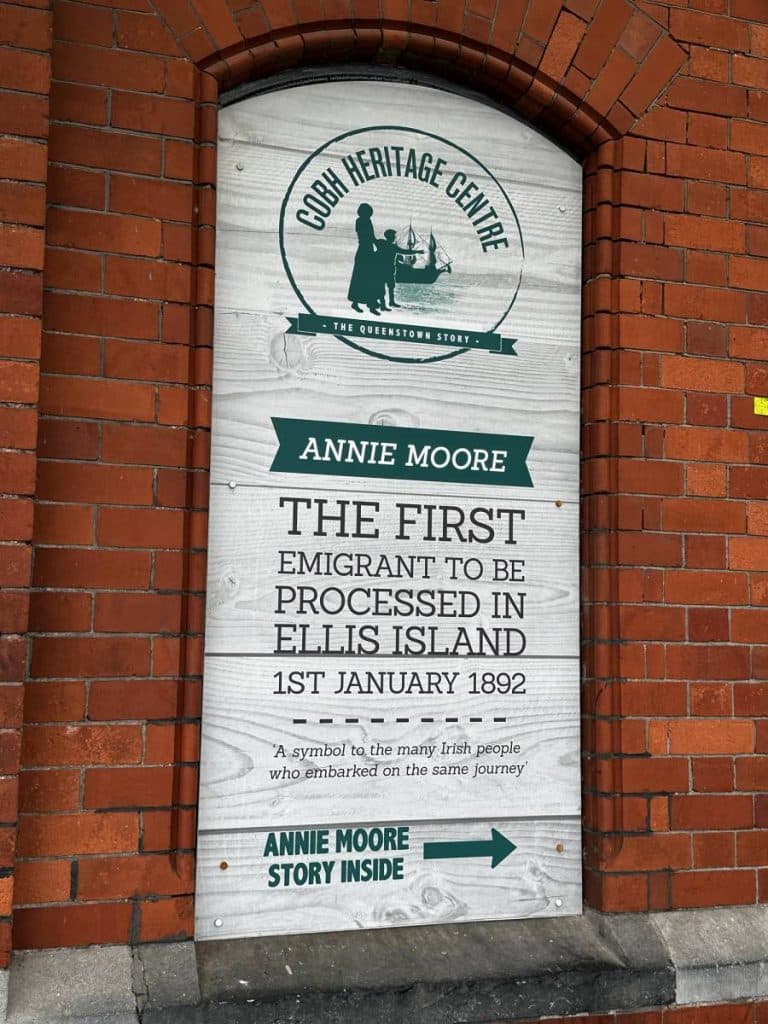
Queenstown was also the last stop of the Titanic before she sank and there’s a memorial in Cobh. Also, one for the Lusitania. Cobh does like a maritime disaster.
My original plan was to visit the Lusitania museum in Kinsale about an hour away. The immigration fiasco thwarted my plans though.
The Lusitania was a Cunard passenger ship which left New York on May 1st, 1915, bound for Liverpool. Back then this was the only way to travel from the US to Europe. German U-Boats were a threat to British vessels, but no one thought they would target a passenger ship. The Lusitania was fast, a four stacker, (which will have ocean liner enthusiasts salivating), and it held the speed record for crossing the Atlantic. The Captain, William Turner, felt that they could outrun any potential threat. Not a torpedo though. On May 7th as the vessel passed 11 miles off the southern Irish coast, she was torpedoed and sank in 18 minutes. Of the 2000 people on board, around 1200 died in the disaster including 120+ Americans.
The following notice was printed in 50 US newspapers.
NOTICE!
TRAVELLERS intending to embark on the Atlantic voyage are reminded that a state of war exists between Germany and her allies and Great Britain and her allies; that the zone of war includes the waters adjacent to the British Isles; that, in accordance with formal notice given by the Imperial German Government, vessels flying the flag of Great Britain, or any of her allies, are liable to destruction in those waters and that travellers sailing in the war zone on the ships of Great Britain or her allies do so at their own risk.
IMPERIAL GERMAN EMBASSY
Washington, D.C. 22 April 1915
The ship was hit by U-Boat U-20 commanded by Walther Schwieger, and had only 3 torpedoes left and was running low on fuel. He was killed two years later whilst commanding U-88 which hit a mine. Everyone on board died.
Captain Turner was one of the survivors, but one notable death was the wealthy, Alfred Gwynne Vanderbilt, aged 37. He was apparently a hero helping others to safety and giving up his lifeboat spot to another person.
A number of famous people missed the sailing for one reason or another. Dancer, Isadora Duncan, actress Ellen Terry, and William Morris, born Zelman Moses, who founded the largest talent agency in the US, William Morris. He had also cancelled the Titanic sailing at the last minute due to business matters.
One chap, George Beauchamp, who worked in the boiler room, survived both the Titanic (1912), and the Lusitania (1915). After those two narrow escapes he switched to smaller ships and was nicknamed Lucky George.
The sinking of the Lusitania, and the loss of American lives, created a lot of anti-German sentiment in the US. This proved to be a contributing factor to America joining the war in 1917.




This Post Has 0 Comments